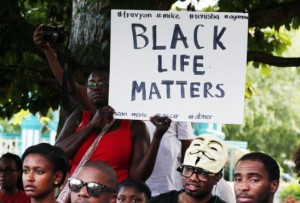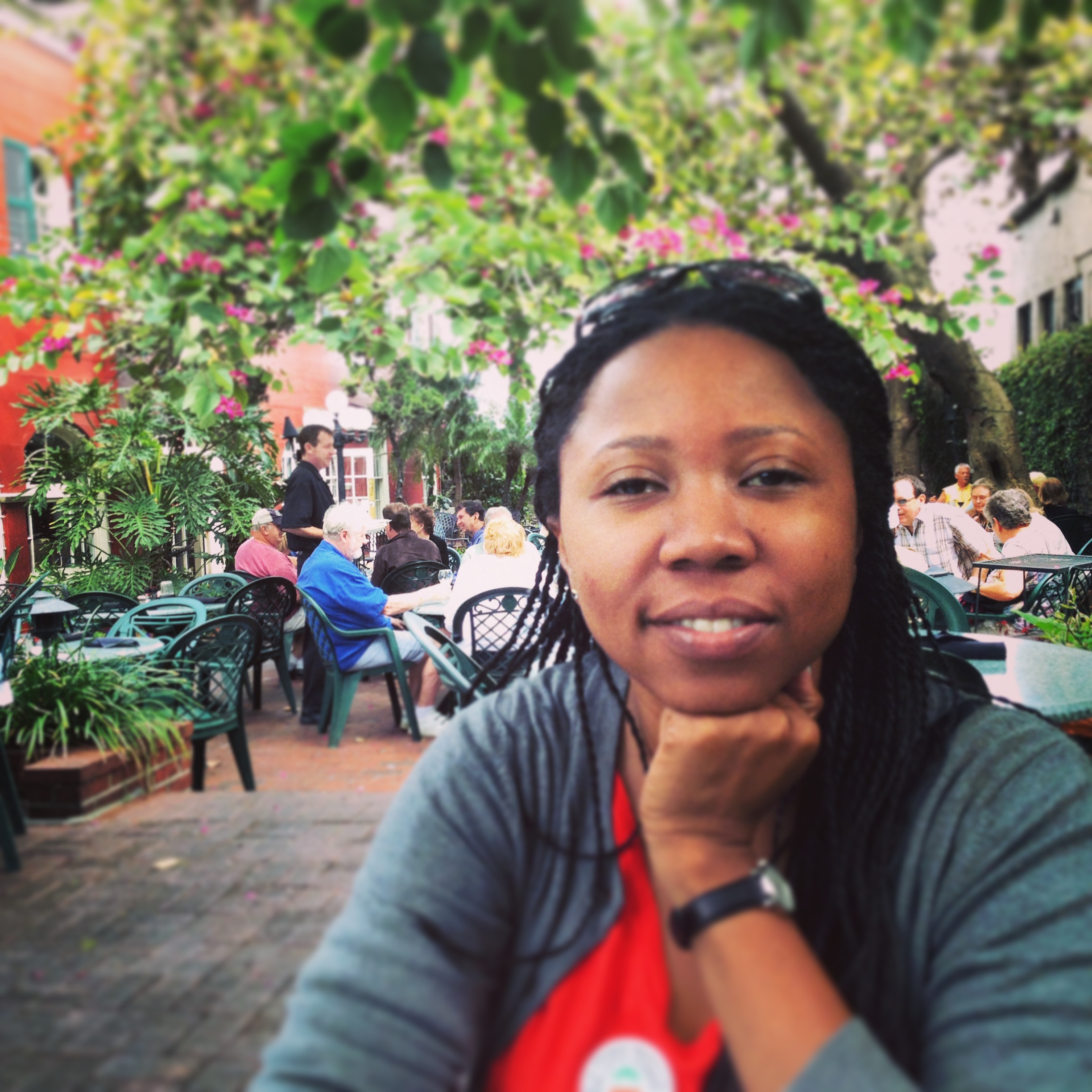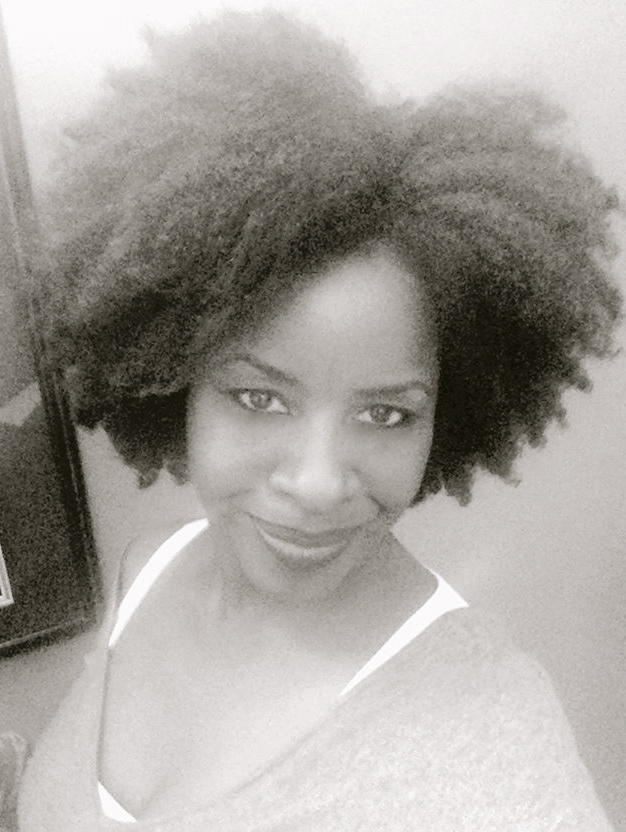Back Up, Back Off, and Listen
By Aaminah Shakur
 In the wake of a very public war in Ferguson, Missouri, following the murder by police of Michael Brown, the white power structure in our country is having a meltdown. I doubt many of us are especially surprised that our white colleagues, family, and friends are showing themselves overwhelmingly incapable of dealing with current events. Many people of color are putting in long hours attempting to educate white friends on issues around structural violence, racial disparity, and how media representation ties into larger issues. And still, we are not shocked that we are getting pushback from white friends about this. What has surprised me, and many of my friends, is the mess coming from other non-Black people of color at this time.
In the wake of a very public war in Ferguson, Missouri, following the murder by police of Michael Brown, the white power structure in our country is having a meltdown. I doubt many of us are especially surprised that our white colleagues, family, and friends are showing themselves overwhelmingly incapable of dealing with current events. Many people of color are putting in long hours attempting to educate white friends on issues around structural violence, racial disparity, and how media representation ties into larger issues. And still, we are not shocked that we are getting pushback from white friends about this. What has surprised me, and many of my friends, is the mess coming from other non-Black people of color at this time.
I identify primarily as Indigenous/First Nations, but I am also Black and white on my mother’s side. I am about as light-skinned as any white person, and I have to acknowledge the privileges this conveys for me, most notably in regards to my basic safety in public. As a Muslim and also a practitioner of traditional spirituality, I wear a headwrap and have worn some sort of head covering for almost 18 years. This means that I frequently deal with both Islamophobia and the recognition that I am something “other” than white, despite my light skin. But this does not change the reality that I have many privileges and the ability to “pass” if I need to. My body does not clearly mark me out accurately, and I am not someone who is going to be shot in the street by police. While I am living an experience as a Native woman, an experience as a Black woman, and an experience as a multi-racial woman, I am also to some degree living an experience as a conveniently assumed-white woman. This makes me somewhat sensitive to the fact that other Black women experience anti-Blackness in ways and degrees I certainly never will.
Unfortunately, it seems more than a few other non-Black people of color have missed that memo. Just in the past week, I have engaged in or witnessed half a dozen conversations wherein several women of color have issued anti-Black statements, expressed common anti-Black sentiments, attempted to speak over Black women about Black-specific issues, and defended white women as if they themselves were white and therefore heavily invested. In half a dozen additional conversations, I have been responding to white friends-of-friends who thoughtlessly posted dismissive “I know exactly what you mean” or “I don’t see what race has to do with it” comments on very personal reflections written by Black friends. Throughout these conversations, I have found myself numerous times wanting to shout at my fellow light-skinned and non-Black folks of color to “BACK UP & OFF!” Ok, that’s the euphemistic phrasing of what I have actually screamed at my computer screen numerous times.
Taking cues from actual conversations I have witnessed or been a part of in just the past week, here is a quick little guide for all people who seem to be struggling to recognize when it is time to back up, shut up, and listen to the experiences, feelings, and needs of Black friends and colleagues:
1. Are you witness to a conversation between Black women about natural hair issues? BACK UP. If you’re not Black, you really have nothing to contribute to this conversation, though you are certainly welcome to sit in and listen. This is a great time to evaluate how the structural discrimination and violence against visibly Black people differs from your own experiences of discrimination and racism.
Do you feel tempted to respond to comments about how white women are appropriating the language and issues of the Black natural hair movement? BACK OFF. This isn’t a conversation about you. You may, as a woman of color, experience issues with your hair and perceptions of you related to it. It’s not the same as what Black women deal with on a wider systemic level. It is also likely that negative reactions to your kinky/curly/unruly hair are precisely because it is being compared to “Black hair” and it speaks to the negativity put on Black hair. Furthermore, if you feel inclined to come back later with articles you have dug up that support your thoughts and try to shame Black women for expressing their own experiences and feelings, BACK IT ALL THE WAY UP.
2. Is someone critiquing a white celebrity, pop star, chef, actor, or other performer for cultural appropriation and/or racism, and your reaction is to say that you don’t see the racism/problem? BACK UP. As a white person, you may not be able to recognize what looks like obvious racism to people who are directly affected by the media representations of their culture. This isn’t just a “difference of opinion” when you express your incredulity or your annoyance that “you make everything about race.” It is better for you to sit back, save your opinions, and if you are interested, listen to the perspectives given by the people of color in the conversation. Because really, unless what you have to say is to support people of color against an onslaught of #notallwhitepeople or something similar, your opinion is not actually necessary to the conversation. Also, any inclination to say “but he’s a great guy!” or any variation of “they do good work!” is wholly unnecessary and you should BACK OFF. Doing some good work or being a nice person does not magically make everything they say or do okay and/or above critique.
3. Are your friends talking about how #Ferguson connects to other racist and anti-Black issues in their lives and you just don’t know what one has to do with the other? BACK UP. If you would keep reading and listening to your friends, they are explaining how these issues connect, both in very personal ways to them, and on a larger systemic scale. Your inclination to say, for example, that a yucky Taylor Swift video has nothing to do with police violence is not helpful and is instead dismissive, so BACK OFF. If you’re reading along and you still don’t get it, you need to consider how outside of your experience these situations are and that your inability to understand does not negate the reality your friends are talking about.
4. Did your Black friend, friend-of-a-friend, or co-worker just share a very personal experience related to on-the-job discrimination, health disparities, or mistreatment? BACK UP. Before you respond to tell them that your other Black friend said this isn’t an issue or that they are “playing the race card,” BACK OFF. What is your motivation for even commenting on this matter beyond “I did not realize these things still happen and I am disgusted that you experienced that”? It is common for people who aren’t Black to perceive a situation very differently than how it feels and is playing out for the Black person involved. There are numerous studies that bear out the underlying assumptions, prejudices, and systemic disparities that lead up to an experience being seen for what it is. There are also studies that show non-Black people frequently do not feel the same level of empathy towards Black people talking about their pain as they feel when it is another non-Black person talking about a similar situation. You might want to ask yourself if there may be reasons that you find the story of a Black person less believable than if someone from your own ethnicity or culture is telling it.
We’ve all heard “Google (or Bing) is your friend” and this remains true in our current climate where people too often claim they “didn’t know.” If you don’t know about something, you probably shouldn’t be commenting on it. If you are “just trying to understand” then you should do your research and pay attention to the free education that is being offered in the conversation you are witness to. If you aren’t Black, you shouldn’t try to speak over Black people about a subject they cannot escape and that you can only ever know something about but not the complete experience. If you are on social media and engaging in conversations where Black people are talking about issues dear to them, you clearly have access to information so that you can be more knowledgeable about the subject. The ever-increasing use of social media as both news source and access to diverse commentary is more valuable than it is often given credit for.
In short, now is a golden opportunity for you to learn some new things and challenge your tired old perceptions. Just remember, this requires you to back up, back off, and listen to actual Black people.
___________________________________
 Aaminah Shakur is an artist and poet whose work is most informed by their First Nations/Indigenous culture and spiritualities. They are queer, crip/disabled, have no formal academic background, and are a self-taught artist. They are also a mother, a healer, and a doula/birth justice worker. Their work is primarily mixed-media arts combining text/poetry, collage or transferred images, paint, fiber arts, and beadwork, with a use of found and repurposed items. The work explores themes of love, gender, motherhood, spirituality, sexuality, history, borders, culture, privilege and oppression, abuse, freedom and revolution – and how all of these are interconnected. Their writing has appeared in Dear Sister: Letters from Survivors of Sexual Violence, and they have also written about sexual violence and trauma here.
Aaminah Shakur is an artist and poet whose work is most informed by their First Nations/Indigenous culture and spiritualities. They are queer, crip/disabled, have no formal academic background, and are a self-taught artist. They are also a mother, a healer, and a doula/birth justice worker. Their work is primarily mixed-media arts combining text/poetry, collage or transferred images, paint, fiber arts, and beadwork, with a use of found and repurposed items. The work explores themes of love, gender, motherhood, spirituality, sexuality, history, borders, culture, privilege and oppression, abuse, freedom and revolution – and how all of these are interconnected. Their writing has appeared in Dear Sister: Letters from Survivors of Sexual Violence, and they have also written about sexual violence and trauma here.




Pingback: #FergusonFridays: White Anti-Racism, Social Media, and the Problem of Self-Serving Allying - The Feminist Wire | The Feminist Wire
Pingback: Ferguson Fridays: White Antiracism, Social Media and the Problem of Self-Serving Allying
Pingback: #FergusonFridays: White Anti-Racism, Social Media, & Self-Serving Allying | PopularResistance.Org